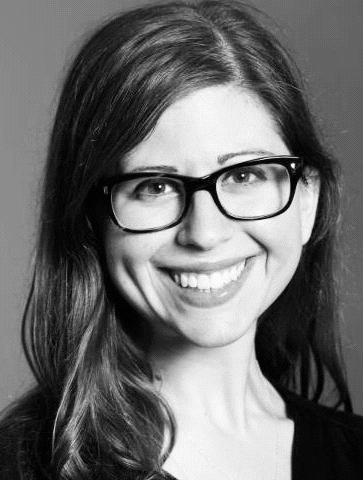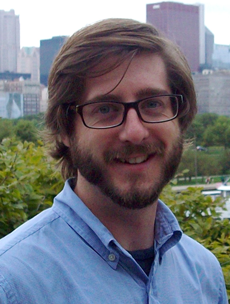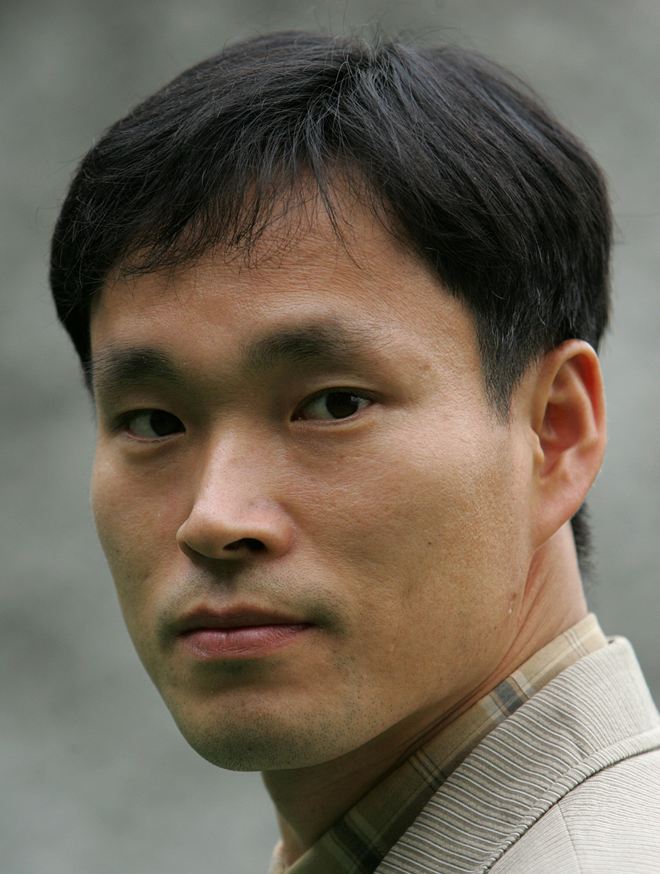Keynote Speaker
Ronald S. Burt, Hobart W. Williams Professor of Sociology and Strategy, University of Chicago Booth School of Business. His keynote address is titled “Personal Influence in Social Networks.”
Abstract: The ready availability of online data has triggered an explosive renewal of interest in personal influence. Researchers from computer science, economics, medicine, physics, political science, and sociology have flocked to the topic of personal influence in social networks. My point in this presentation is that research on personal influence has always been a cornerstone in communication studies and would greatly benefit in its current state from the historical wisdom of communication studies. The prevailing model for research on personal influence is behavioral communication — people talking to one another in asocial network create a risk of contagion, the behavior and ideas of one infecting the other. But behavioral communication can be irrelevant where it is obvious and essential where it is not obvious. The complication is symbolic communication between people who influence one another as substitutable peers without talking to one another. I ground the distinction between behavioral and symbolic communication in theory and key research studies to sketch implications for contemporary research on personal influence.
Panel Discussants
Panel I: ICTs as the Means and Target of Collective Dissent.
Zizi Papacharissi (PhD University of Texas at Austin 2000), is Professor and Head of the Communication Department at the University of Illinois-Chicago. Her work focuses on the social and political consequences of online media. Her book, A Private Sphere: Democracy in a Digital Age (Polity Press, 2010), discusses how online media redefine our understanding of public and private in late-modern democracies. She also recently edited a volume on online social networks, titled A Networked Self: Identity, Community, and Culture on Social Network Sites (Routledge, 2010). She is author of three books, and over 40 journal articles, book chapters or reviews, and Editor of the Journal of Broadcasting and Electronic Media. She serves on the Editorial Board of ten journals, including the Journal of Communication, Human Communication Research, and New Media and Society.
Panel II: Business or Pleasure? Work and Friendship on SNSs
Catalina Toma, University of Wisconsin-Madison. Catalina Toma received her PhD from the Department of Communication at Cornell University in 2010. Her research examines the effects of new media technologies on relational communication (i.e., impression management, impression formation, deception and trust) and on users’ self-esteem and emotional well-being. Her recent projects include self-presentation and deception in online dating profiles, the psychological benefits of social networking websites, and assessing the trustworthiness of online self-presenters.
Panel III: Shh … Don’t Share! Intimacy, Privacy, and Apps
Christena Nippert-Eng is a Professor of Sociology and Chair of the Department of Social Sciences at the Illinois Institute of Technology in Chicago. Her research interests include cognitive sociology, culture, everyday life, privacy, work, gender, the home, time and space, technology, ethnography, and the Western Lowland Gorillas of the Lincoln Park Zoo.
Panel IV: Health, Media and Technology
Amy Gonzales (PhD, Cornell University) is an Assistant Professor at Indiana University in the Department of Telecommunications. Her research examines the effects that communication technologies have on individual identity, social support, and well-being. She is especially interested in these effects for disadvantaged groups. Her recent studies have explored everyday use of social media across class, and the use of texting to improve social support in low-income neighborhoods.
Panel V: Participation, Socialization, and Memory Online (TBA)
Kevin G. Barnhurst (Ph.D., University of Amsterdam), currently Professor & Director of Graduate Studies, Department of Communication, University of Illinois at Chicago. In January 2013 will take up a new post as Chair of Communication in the Digital Era, Institute of Communications Studies, University of Leeds, UK. He is now completing a book exploding the myth that the internet is causing the meltdown of mainstream U.S. journalism. He is collaborating with John Nerone on “mobile privatization,” how networks of information, transportation, power transmission, and other utilities train and entertain consumers into following patterns of long-distance sociability and politics.
Panel VI: The Coordinates of Identity in Multiple Worlds
Pablo Boczkowski (Northwestern University)
Presenters
 Tanja Aitamurto is a visiting researcher at the Program on Liberation Technology at Stanford. In her PhD project she examines the impact of collective intelligence on journalism by studying manifestations of collective intelligence, such as crowdsourcing, co-creation, crowdfunding, and open innovation. She examines new value constellations, which are formed in the participatory practices and in the interplay of human and material agency. The goal of her studies is to create an optimal model for the use of open practices in journalism. Related to her studies, she advises the Government and the Parliament of Finland, her native country, about Open Government principles, for example how to use open data and crowdsourcing for democratic processes.
Tanja Aitamurto is a visiting researcher at the Program on Liberation Technology at Stanford. In her PhD project she examines the impact of collective intelligence on journalism by studying manifestations of collective intelligence, such as crowdsourcing, co-creation, crowdfunding, and open innovation. She examines new value constellations, which are formed in the participatory practices and in the interplay of human and material agency. The goal of her studies is to create an optimal model for the use of open practices in journalism. Related to her studies, she advises the Government and the Parliament of Finland, her native country, about Open Government principles, for example how to use open data and crowdsourcing for democratic processes.
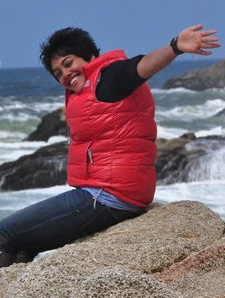 Sonia Rab Alam is a third-year doctoral student in Medical Sociology at University of California, San Francisco, where she concentrates in science and technology studies. Her research interests revolve around the nexus of pharmaceutical marketing and neoliberal science, and she is specifically interested in how pharmaceutical communication priorities constitutes what science is and can be and defines biomedical subjectivities. She has been following the pharmaceutical industry’s engagement with social media for marketing purposes to explore the kinds of relations made available through these technologies.
Sonia Rab Alam is a third-year doctoral student in Medical Sociology at University of California, San Francisco, where she concentrates in science and technology studies. Her research interests revolve around the nexus of pharmaceutical marketing and neoliberal science, and she is specifically interested in how pharmaceutical communication priorities constitutes what science is and can be and defines biomedical subjectivities. She has been following the pharmaceutical industry’s engagement with social media for marketing purposes to explore the kinds of relations made available through these technologies.
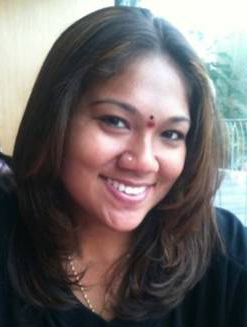
Komathi Ale received both her B.A. and M.A. degrees in Communication Studies from the Wee Kim Wee School of Communication and Information at the Nanyang Technological University in Singapore. Her research focuses on the impact of information and communication technologies for development, with specific interest in addressing social issues among marginalized communities.
Meryl Alper (B.S., Northwestern) is a third year Ph.D. student in Communication at the Annenberg School for Communication and Journalism at the University of Southern California. Working with Prof. Henry Jenkins, her research focuses on young children’s evolving relationships with old and new technologies, and in particular, the social, cultural, and historical construction of early literacy, as well as assistive technologies for children with disabilities. Meryl has also worked as a researcher for Sesame Street, Nick Jr., and The Joan Ganz Cooney Center at Sesame Workshop.
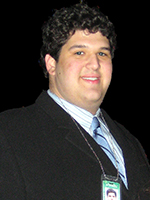 Joshua Altman is a graduate student in the M.A. in Communication, Culture and Technology program at Georgetown University. He earned his bachelors in with majors in Journalism and Mass Communication & History from The George Washington University. Currently, he is working on his thesis investigating how different technologies shaped the relationship between news producers and consumers. Joshua is a full time working journalist with The Hill newspaper in Washington, D.C. where he is a multimedia producer. For more visit his website JoshuaIAltman.com [http://joshuaialtman.com] and follow him on twitter @JoshuaIAltman [https://twitter.com/JoshuaIAltman].
Joshua Altman is a graduate student in the M.A. in Communication, Culture and Technology program at Georgetown University. He earned his bachelors in with majors in Journalism and Mass Communication & History from The George Washington University. Currently, he is working on his thesis investigating how different technologies shaped the relationship between news producers and consumers. Joshua is a full time working journalist with The Hill newspaper in Washington, D.C. where he is a multimedia producer. For more visit his website JoshuaIAltman.com [http://joshuaialtman.com] and follow him on twitter @JoshuaIAltman [https://twitter.com/JoshuaIAltman].
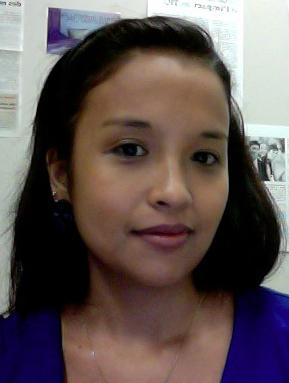 Mary Jane Kwok Choon is a PhD candidate at Université du Québec à Montréal (UQAM). A native of Mauritius, she graduated from Université Paul Valéry in France with a Bachelor and Master degree in communication and joined UQAM in 2009. Her thesis focuses on Canadians’ privacy practices in the context of social network sites.Her other research interests are contemporary forms of surveillance practices, mediated visibilities, and the a priori emancipatory potential of new media. As an assistant researcher at the GRICIS, she is working on a project directed by Éric George and funded by the SSHRC and FQRSC.
Mary Jane Kwok Choon is a PhD candidate at Université du Québec à Montréal (UQAM). A native of Mauritius, she graduated from Université Paul Valéry in France with a Bachelor and Master degree in communication and joined UQAM in 2009. Her thesis focuses on Canadians’ privacy practices in the context of social network sites.Her other research interests are contemporary forms of surveillance practices, mediated visibilities, and the a priori emancipatory potential of new media. As an assistant researcher at the GRICIS, she is working on a project directed by Éric George and funded by the SSHRC and FQRSC.
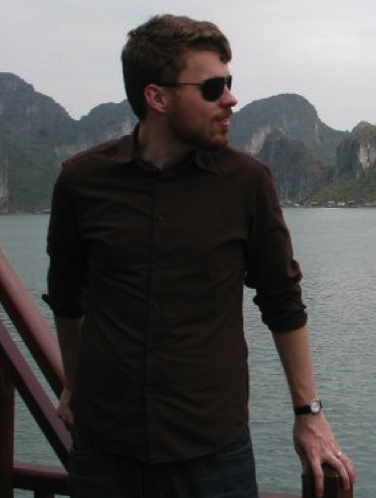 Alan Clark – “I’m in the Media, Technology & Society Ph.D. program in the School of Communication at Northwestern University. Broadly speaking, I study collaboration and technology with a focus on the factors that support interpersonal coordination at both micro- and group-levels. My dissertation, and poster at InfoSocial, are about the idea of task-technology fit – the concept that people collaborate most effectively using technology when a technology’s features support the information needed to coordinate the process and content of a task – and how this idea is affected by particular tasks, measures of fit, and status differences among collaborators.”
Alan Clark – “I’m in the Media, Technology & Society Ph.D. program in the School of Communication at Northwestern University. Broadly speaking, I study collaboration and technology with a focus on the factors that support interpersonal coordination at both micro- and group-levels. My dissertation, and poster at InfoSocial, are about the idea of task-technology fit – the concept that people collaborate most effectively using technology when a technology’s features support the information needed to coordinate the process and content of a task – and how this idea is affected by particular tasks, measures of fit, and status differences among collaborators.”
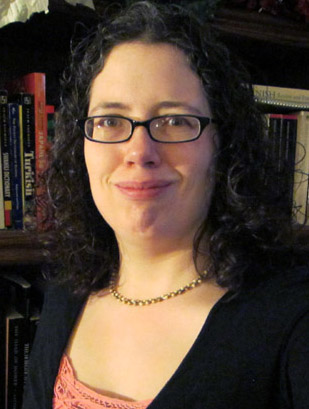 Lauren B. Collister is a Ph.D. Candidate in Sociolinguistics at the University of Pittsburgh. Her undergraduate education was at The Ohio State University, where she earned Bachelor of Arts degrees in Music Theory and Linguistics. Her primary research interest is multimodality and language use in online contexts; additional research interests include manifestations of language change and dialect variation in virtual worlds and social media. Her dissertation work focuses on social uses of linguistic mode in World of Warcraft.
Lauren B. Collister is a Ph.D. Candidate in Sociolinguistics at the University of Pittsburgh. Her undergraduate education was at The Ohio State University, where she earned Bachelor of Arts degrees in Music Theory and Linguistics. Her primary research interest is multimodality and language use in online contexts; additional research interests include manifestations of language change and dialect variation in virtual worlds and social media. Her dissertation work focuses on social uses of linguistic mode in World of Warcraft.
 Gregory T. Donovan is a Ph.D. candidate in Environmental Psychology and an Interactive Technology and Pedagogy certificate candidate at the CUNY Graduate Center. He is a Senior Instructional Technology Fellow at the Macaulay Honors College, the founder of the OpenCUNY.org Academic Medium, and a member of the Journal of Interactive Technology and Pedagogy’s editorial collective. His research operates at the intersection of Urban Studies, Youth Studies, and Information Architecture, and his dissertation, MyDigitalFootprint.ORG, is a participatory action research project that investigates the mutual shaping of young people and proprietary technology through everyday environments.
Gregory T. Donovan is a Ph.D. candidate in Environmental Psychology and an Interactive Technology and Pedagogy certificate candidate at the CUNY Graduate Center. He is a Senior Instructional Technology Fellow at the Macaulay Honors College, the founder of the OpenCUNY.org Academic Medium, and a member of the Journal of Interactive Technology and Pedagogy’s editorial collective. His research operates at the intersection of Urban Studies, Youth Studies, and Information Architecture, and his dissertation, MyDigitalFootprint.ORG, is a participatory action research project that investigates the mutual shaping of young people and proprietary technology through everyday environments.
 Fawn Draucker is a Ph.D. Candidate in Sociolinguistics at the University of Pittsburgh. Her primary research interests lie in participation, ownership of talk, and audience design in online mediums. Her dissertation focuses these interests on communication between sports organizations and their fans on Twitter. Additional research interests include discursive structures in sports broadcasting, as well as sociophonetic aspects of dialect variation. Her undergraduate work was completed at Dartmouth College, where she received a B.A. in Linguistics modified with Psychological Brain Sciences.
Fawn Draucker is a Ph.D. Candidate in Sociolinguistics at the University of Pittsburgh. Her primary research interests lie in participation, ownership of talk, and audience design in online mediums. Her dissertation focuses these interests on communication between sports organizations and their fans on Twitter. Additional research interests include discursive structures in sports broadcasting, as well as sociophonetic aspects of dialect variation. Her undergraduate work was completed at Dartmouth College, where she received a B.A. in Linguistics modified with Psychological Brain Sciences.
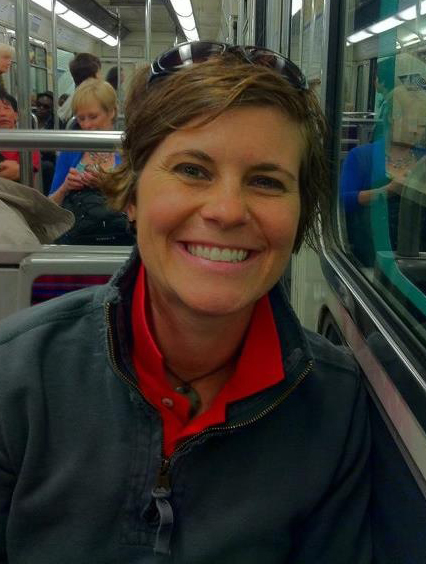 Lindsay Ems is a doctoral student at Indiana University in the Department of Telecommunications. Her research explores how ethical and cultural values are expressed in group adoption and use of technologies. Some of Lindsay’s recent work explores the manifestation of dissent, anarchy and breakdown in authoritarian social power structures due to the use of social media by protesters. Her future work will focus on understanding how Midwestern Amish communities make sense of and use new communication technologies such as the internet, social media and cell phones.
Lindsay Ems is a doctoral student at Indiana University in the Department of Telecommunications. Her research explores how ethical and cultural values are expressed in group adoption and use of technologies. Some of Lindsay’s recent work explores the manifestation of dissent, anarchy and breakdown in authoritarian social power structures due to the use of social media by protesters. Her future work will focus on understanding how Midwestern Amish communities make sense of and use new communication technologies such as the internet, social media and cell phones.
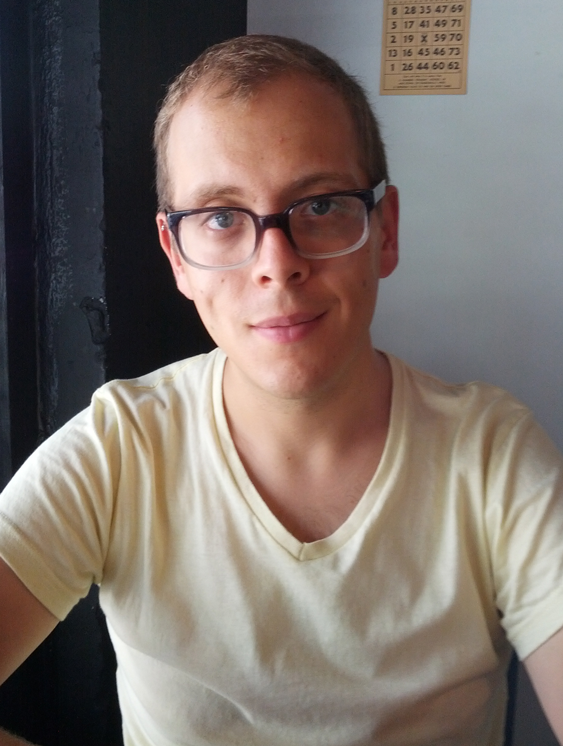 Maxwell Foxman is a PhD candidate at Columbia University where he studies Communications. Before Columbia, Maxwell received his Master’s in Media, Culture and Communication where he studied social and digital media in the contexts of gamification and location-based technology. His Master’s thesis explored the motivations behind playing the social media application Foursquare. Maxwell also founded an Independent Studies program while teaching at the Rockland Country Day School in Congers, NY.
Maxwell Foxman is a PhD candidate at Columbia University where he studies Communications. Before Columbia, Maxwell received his Master’s in Media, Culture and Communication where he studied social and digital media in the contexts of gamification and location-based technology. His Master’s thesis explored the motivations behind playing the social media application Foursquare. Maxwell also founded an Independent Studies program while teaching at the Rockland Country Day School in Congers, NY.
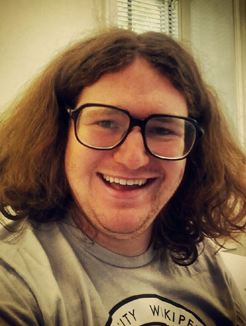 R. Stuart Geiger is a doctoral student in the School of Information at the University of California, Berkeley. A computational ethnographer, he studies knowledge production in distributed and decentralized organizations. Stuart’s research currently focuses on the social and organizational roles of software in the operation and maintenance of Wikipedia and scientific research networks. His work has been published in American Behavioral Scientist, Information and Organization, and proceedings of CHI, CSCW, ICWSM, HICSS, and WikiSym.
R. Stuart Geiger is a doctoral student in the School of Information at the University of California, Berkeley. A computational ethnographer, he studies knowledge production in distributed and decentralized organizations. Stuart’s research currently focuses on the social and organizational roles of software in the operation and maintenance of Wikipedia and scientific research networks. His work has been published in American Behavioral Scientist, Information and Organization, and proceedings of CHI, CSCW, ICWSM, HICSS, and WikiSym.
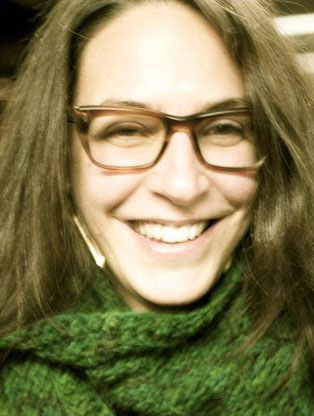 Kiersten Greene is a PhD candidate in the Urban Education program at the CUNY Graduate Center. Her research interests lie at the intersection of policy, practice, and technology in the K-12 public school classroom. Her dissertation focuses on the content of blogs written by New York City teachers about their daily experiences, and how these narratives can inform future school reform and policymaking decisions. She is currently a Dissertation Writing Fellow at the CUNY Graduate Center, and blogs at Mediated<opencuny.org/mediated>. When she’s not teaching, researching, or writing, you can find her knitting.
Kiersten Greene is a PhD candidate in the Urban Education program at the CUNY Graduate Center. Her research interests lie at the intersection of policy, practice, and technology in the K-12 public school classroom. Her dissertation focuses on the content of blogs written by New York City teachers about their daily experiences, and how these narratives can inform future school reform and policymaking decisions. She is currently a Dissertation Writing Fellow at the CUNY Graduate Center, and blogs at Mediated<opencuny.org/mediated>. When she’s not teaching, researching, or writing, you can find her knitting.
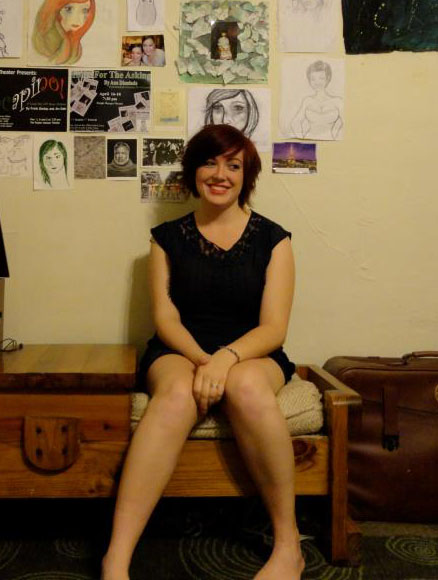 Blake (Megan) Hallinan is pursuing an MA in the department of Communication and Culture and Indiana University, focusing on the intersection of new media technologies and communities. Her theoretical interests range from feminisms and queer theory to Giles Deleuze and affect theory, specifically as applied to virtual communities and virtual identities.
Blake (Megan) Hallinan is pursuing an MA in the department of Communication and Culture and Indiana University, focusing on the intersection of new media technologies and communities. Her theoretical interests range from feminisms and queer theory to Giles Deleuze and affect theory, specifically as applied to virtual communities and virtual identities.
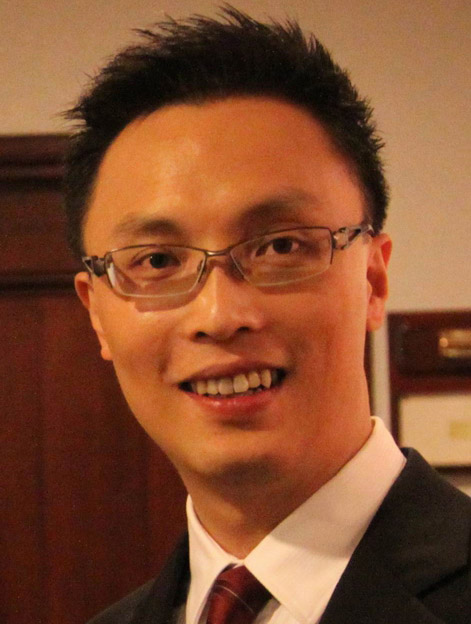 Yuli Patrick Hsieh – My main research interests concern the effects of Information and communication technologies (ICTs) on social interaction and social relationship, as well as their inequality implications for social, psychological, and economic well-being. Specifically, my current research focuses on how people use various ICTs to maintain their personal networks. In addition, I am interested in survey methodology focusing primarily on improving data quality of self reports of personal networks.
Yuli Patrick Hsieh – My main research interests concern the effects of Information and communication technologies (ICTs) on social interaction and social relationship, as well as their inequality implications for social, psychological, and economic well-being. Specifically, my current research focuses on how people use various ICTs to maintain their personal networks. In addition, I am interested in survey methodology focusing primarily on improving data quality of self reports of personal networks.
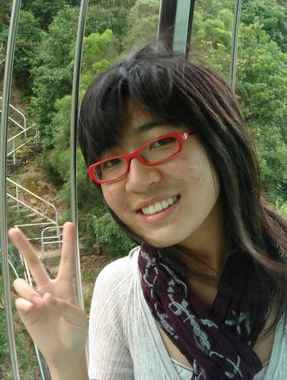 Sun Huan is a graduate student at Comparative Media Studies and research assistant at Center for Civic Media of MIT. She received a B.A. in Journalism from Tsinghua University, Beijing. Her research interest lies in the rise of digital media and its socio-political implications on China. She is also closely involved with NGO2.0 Project, which aims to build up Chinese grassroots NGOs’ digital literacy. Her undergraduate thesis quantitatively examines Chinese college students’ use of social media and their political participation.
Sun Huan is a graduate student at Comparative Media Studies and research assistant at Center for Civic Media of MIT. She received a B.A. in Journalism from Tsinghua University, Beijing. Her research interest lies in the rise of digital media and its socio-political implications on China. She is also closely involved with NGO2.0 Project, which aims to build up Chinese grassroots NGOs’ digital literacy. Her undergraduate thesis quantitatively examines Chinese college students’ use of social media and their political participation.
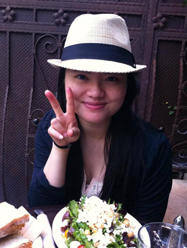 Jin Huang acquired a double degree in Journalism and Marketing from mainland China. She studied communication management and new media at National University of Singapore as an exchange student in her junior year on a national scholarship. She then received a Masters in Strategic Public Relations from University of Southern California, where she worked with Professor Sandra J. Ball-Rokeach and Professor Michael Parks to develop a local news product as a means to improving civic engagement in an ethnically diversified community in Los Angeles. After graduation, Jin moved to Beijing and worked for a consulting agency on corporate communication, CSR campaign, media relations, product promotion and crisis communication. She is now back to USC Anneberg to pursue a PhD degree where she hopes to study social influences in online communities, computer-mediated-communication and organizational communication.
Jin Huang acquired a double degree in Journalism and Marketing from mainland China. She studied communication management and new media at National University of Singapore as an exchange student in her junior year on a national scholarship. She then received a Masters in Strategic Public Relations from University of Southern California, where she worked with Professor Sandra J. Ball-Rokeach and Professor Michael Parks to develop a local news product as a means to improving civic engagement in an ethnically diversified community in Los Angeles. After graduation, Jin moved to Beijing and worked for a consulting agency on corporate communication, CSR campaign, media relations, product promotion and crisis communication. She is now back to USC Anneberg to pursue a PhD degree where she hopes to study social influences in online communities, computer-mediated-communication and organizational communication.
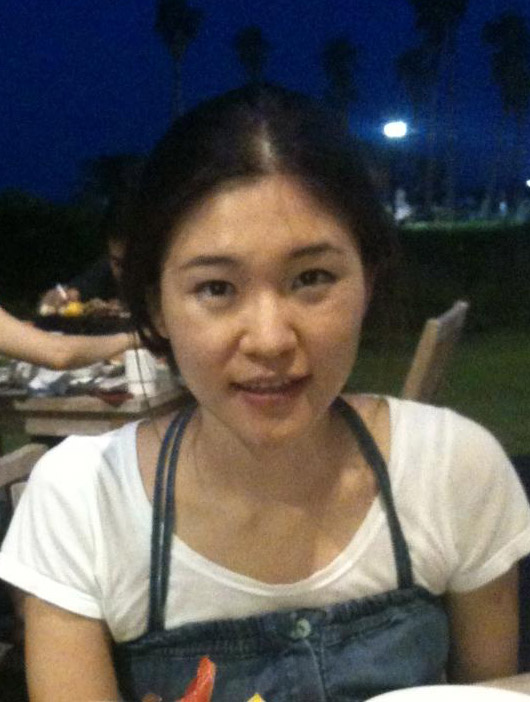 Jennifer Ihm is interested in analyzing NGO networks and their use of technology. She began her graduate work at the University of Illinois at Urbana-Champaign and is now a student in Northwestern’s Media, Technology, & Society program.
Jennifer Ihm is interested in analyzing NGO networks and their use of technology. She began her graduate work at the University of Illinois at Urbana-Champaign and is now a student in Northwestern’s Media, Technology, & Society program.
 Brett Johnson is a PhD student at the University of Minnesota School of Journalism and Mass Communication. His research interests include comparative study of mass communication law and ethics, with particular focus on the subject areas of defamation and dignity and the geographical areas of Brazil and Latin America.
Brett Johnson is a PhD student at the University of Minnesota School of Journalism and Mass Communication. His research interests include comparative study of mass communication law and ethics, with particular focus on the subject areas of defamation and dignity and the geographical areas of Brazil and Latin America.
Kyle M. L. Jones, MLIS, is a Ph.D. student in the University of Wisconsin-Madison’s School of Library and Information Studies. Originally from Byron, IL, Kyle received his BA in with honors from Elmhurst College in Elmhurst, IL in the spring of 2007 and his Masters degree with honors at Dominican University in River Forest, IL in their Graduate School of Library and Information Science in 2009. He defines his research as being in the e-learning informatics branch of the social informatics literature. Currently, he is investigating the student privacy conceptions and concerns related to learning analytics technologies.
 Monika Sengul-Jones is a doctoral student in Communication and Science Studies at University of California, San Diego. She earned a Master of Philosophy in Gender Studies from the Central European University in Budapest, Hungary, and a Bachelor of Arts from the University of Washington in Comparative History. Monika’s current research interests include feminist theory and the practices involved in knowledge-banking on paid and unpaid content websites in English.
Monika Sengul-Jones is a doctoral student in Communication and Science Studies at University of California, San Diego. She earned a Master of Philosophy in Gender Studies from the Central European University in Budapest, Hungary, and a Bachelor of Arts from the University of Washington in Comparative History. Monika’s current research interests include feminist theory and the practices involved in knowledge-banking on paid and unpaid content websites in English.
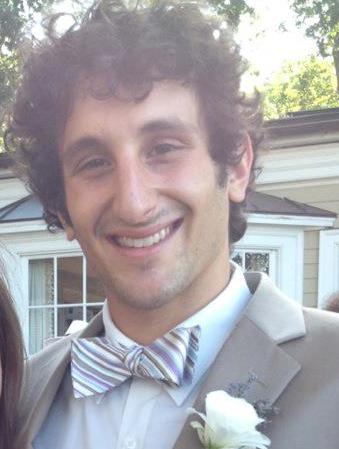 Kenny Joseph – I am entering my third year in the Computation, Organizations and Society Program at Carnegie Mellon University. My research interests are centered around the question of relationships and communities evolve over different media, and how we can use our understandings of this evolution to promote relationship formation in diverse populations. Tools I like to use to address these interests are social network analysis, multi-agent simulation and data mining. For more on me, feel free to visit my website.
Kenny Joseph – I am entering my third year in the Computation, Organizations and Society Program at Carnegie Mellon University. My research interests are centered around the question of relationships and communities evolve over different media, and how we can use our understandings of this evolution to promote relationship formation in diverse populations. Tools I like to use to address these interests are social network analysis, multi-agent simulation and data mining. For more on me, feel free to visit my website.
Rosalind Koff is a current student in Georgetown University’s Communication, Culture & Technology Master’s program. Her research experience is within pediatrics, working with the Adolescent Health Research Team at the University of Wisconsin-Madison, where she received bachelors degrees in Communication Studies and Gender Studies. Her research interests surround the intersection of adolescent health and technology, including the display of risk behaviors online, interpreted behaviors through online content, and perceptions of personal internet use.
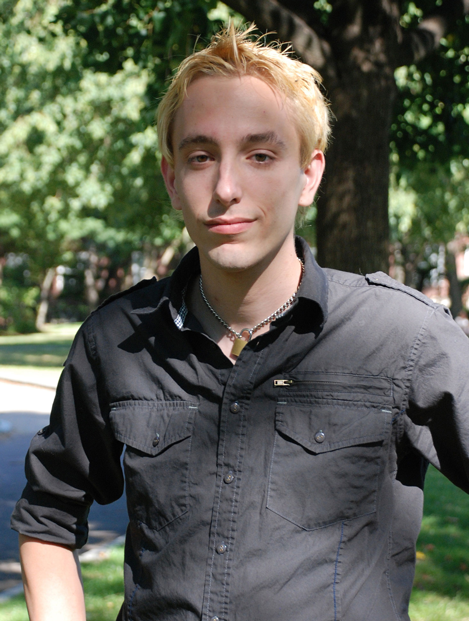 Alex Leavitt is PhD student at USC Annenberg, advised by Henry Jenkins. He studies participation and online communication across networked technologies, particularly information practices across social media platforms. In his research, Alex combines ethnographic inquiry with empirical digital data analysis; recently, he has also been interested in the development and implementation of machine learning algorithms in communications research. Prior to his PhD, Alex was a researcher at the Comparative Media Studies department at MIT and a research assistant to danah boyd at Microsoft.
Alex Leavitt is PhD student at USC Annenberg, advised by Henry Jenkins. He studies participation and online communication across networked technologies, particularly information practices across social media platforms. In his research, Alex combines ethnographic inquiry with empirical digital data analysis; recently, he has also been interested in the development and implementation of machine learning algorithms in communications research. Prior to his PhD, Alex was a researcher at the Comparative Media Studies department at MIT and a research assistant to danah boyd at Microsoft.
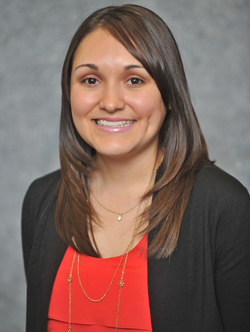 Martha Denise Mata has served as the Assistant Media Relations Director at UTEP Athletics for a year. As Media Relations Director, Mata arranges interviews, writes press releases, and works closely with coaches and athletes from volleyball, cross country, and track & field. Mata previously served as a Media Relations intern at UTEP athletics assisting at the 2011 Conference USA Basketball Championship in El Paso, Texas. Prior to UTEP, Mata worked as the Media Relations Assistant of the Sun Bowl Association (2010-2011). Mata’s duties at the Sun Bowl were wide ranging, including designing media guides, assisting media at press conferences, and event planning. She earned her bachelors degree in Business with a Concentration in Communications from Arizona State University in 2010. Mata is currently pursuing her Masters degree in Communication Studies from the University of Texas at El Paso.
Martha Denise Mata has served as the Assistant Media Relations Director at UTEP Athletics for a year. As Media Relations Director, Mata arranges interviews, writes press releases, and works closely with coaches and athletes from volleyball, cross country, and track & field. Mata previously served as a Media Relations intern at UTEP athletics assisting at the 2011 Conference USA Basketball Championship in El Paso, Texas. Prior to UTEP, Mata worked as the Media Relations Assistant of the Sun Bowl Association (2010-2011). Mata’s duties at the Sun Bowl were wide ranging, including designing media guides, assisting media at press conferences, and event planning. She earned her bachelors degree in Business with a Concentration in Communications from Arizona State University in 2010. Mata is currently pursuing her Masters degree in Communication Studies from the University of Texas at El Paso.
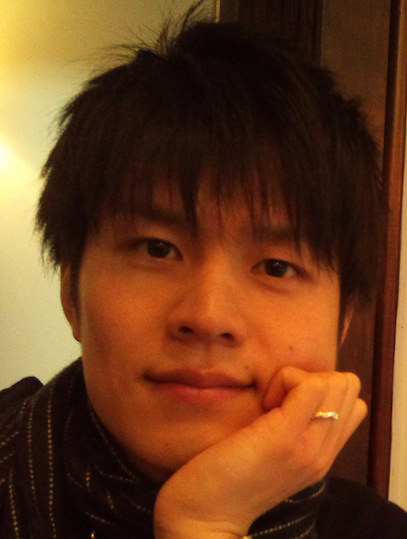 Shusuke Murai – Graduated as a MA in Communication at New York University, Shusuke Murai has focused on a research about the social structure of online communities, a topic that has fascinated him since he met the virtual society for the first time through his dad’s PC with Windows 95 and dial-up modem. His current interest is in the global sequence of uprisings exploiting social media. Despite his fundamental optimism that digital media has potentials to provide a framework for overcoming a number of societal problems, he raises concerns about the current quality of online communication, which tend to fall into irrational interaction.
Shusuke Murai – Graduated as a MA in Communication at New York University, Shusuke Murai has focused on a research about the social structure of online communities, a topic that has fascinated him since he met the virtual society for the first time through his dad’s PC with Windows 95 and dial-up modem. His current interest is in the global sequence of uprisings exploiting social media. Despite his fundamental optimism that digital media has potentials to provide a framework for overcoming a number of societal problems, he raises concerns about the current quality of online communication, which tend to fall into irrational interaction.
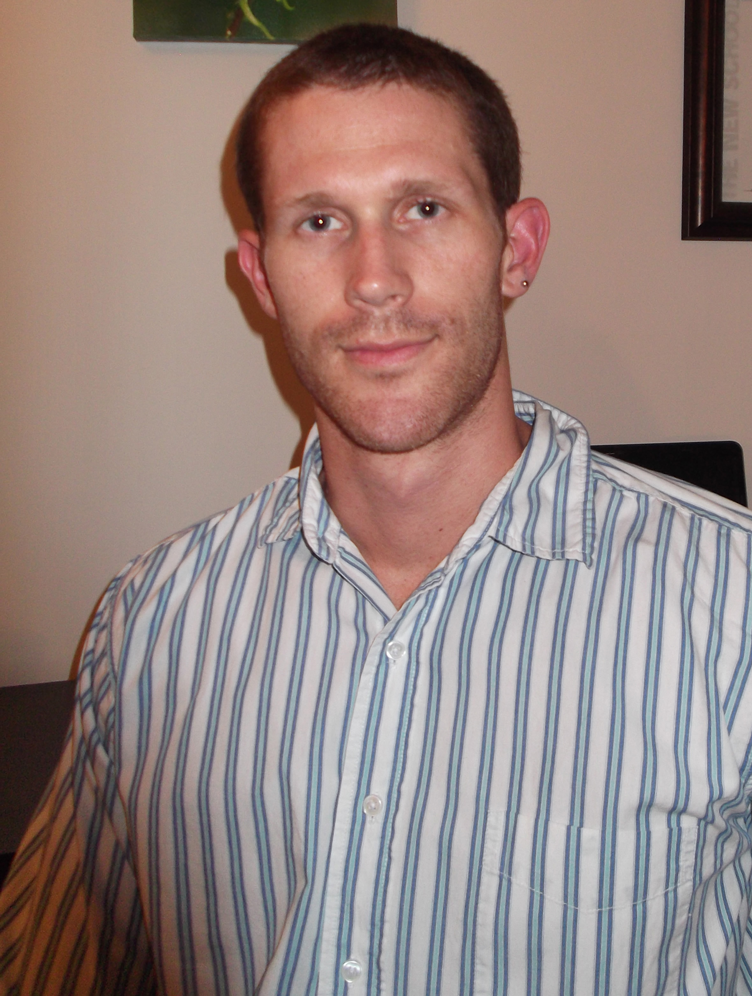 Tai Neilson is a PhD student in Cultural Studies at George Mason University. He received his MA in Sociology from the New School and his BA in Sociology and Media Studies from Victoria University of Wellington. Tai’s interests include the political economy of digital media and critical theory. In addition, he has worked as a Research Analyst at the Harmony Institute and has completed research for the New Zealand Office of Film and Literature Classification.
Tai Neilson is a PhD student in Cultural Studies at George Mason University. He received his MA in Sociology from the New School and his BA in Sociology and Media Studies from Victoria University of Wellington. Tai’s interests include the political economy of digital media and critical theory. In addition, he has worked as a Research Analyst at the Harmony Institute and has completed research for the New Zealand Office of Film and Literature Classification.
Chang Sup Park – My academic main interest centers on the influences of new media such as social networking sites, podcasts, over citizens’ political engagement. Recently I have been investigating the mechanisms of new media that lead individuals who are often considered apathetic to political involvement. I am also interested in the developments of online journalism. I worked as a newspaper journalist for 14 years in Seoul, South Korea. I received the MA degree from Seoul National University and joined the Ph.D program of Southern Illinois University Carbondale in 2010.
 Amanda J. Pulido is currently the UTEP Lifeskills Coordinator. She develops, plans, and implements various programs and seminars for student-athletes with emphasis on academic, athletic, personal, nutritional, service and career development. She plans, markets, and monitors community outreach opportunities for student-athletes as well. Prior to that position, Pulido held internships with the UTEP Marketing department as well as the video production department. Pulido’s duties for these two were wide ranging from executing game day marketing plans, networking and development, as well as constructing, editing, and producing videos. Pulido received her bachelor’s degree in Organizational Communication from UTEP in December 2011. Pulido is currently pursuing her Master’s degree in Communication Studies from the University of Texas at El Paso (UTEP).
Amanda J. Pulido is currently the UTEP Lifeskills Coordinator. She develops, plans, and implements various programs and seminars for student-athletes with emphasis on academic, athletic, personal, nutritional, service and career development. She plans, markets, and monitors community outreach opportunities for student-athletes as well. Prior to that position, Pulido held internships with the UTEP Marketing department as well as the video production department. Pulido’s duties for these two were wide ranging from executing game day marketing plans, networking and development, as well as constructing, editing, and producing videos. Pulido received her bachelor’s degree in Organizational Communication from UTEP in December 2011. Pulido is currently pursuing her Master’s degree in Communication Studies from the University of Texas at El Paso (UTEP).
 Kimberly Pusateri is a first-year Ph.D student in the Department of Communication at the University of Illinois at Urbana-Champaign. Her primary research interests center on interpersonal communication with a focus on the intersection of health and family communication, specifically to understand families in transition. Recent research projects have focused on parent-child interaction on Facebook and online privacy management, closeness, and satisfaction in family relationships.
Kimberly Pusateri is a first-year Ph.D student in the Department of Communication at the University of Illinois at Urbana-Champaign. Her primary research interests center on interpersonal communication with a focus on the intersection of health and family communication, specifically to understand families in transition. Recent research projects have focused on parent-child interaction on Facebook and online privacy management, closeness, and satisfaction in family relationships.
 Dustin Renwick graduated in May with his master’s in journalism from the University of Missouri. He is a 2010 graduate of St. Ambrose University, in Davenport, Iowa. He captained the triathlon team at Mizzou and the track and field team at SAU. He studies how people interact with the range of media platforms available. He focused his thesis research on young adults’ engagement with print, mobile, and online platforms. Additionally, the study examined possible social gratifications for print products and compared gratifications from the three platforms to technology acceptance model factors. Follow him on Twitter @drenwick110.
Dustin Renwick graduated in May with his master’s in journalism from the University of Missouri. He is a 2010 graduate of St. Ambrose University, in Davenport, Iowa. He captained the triathlon team at Mizzou and the track and field team at SAU. He studies how people interact with the range of media platforms available. He focused his thesis research on young adults’ engagement with print, mobile, and online platforms. Additionally, the study examined possible social gratifications for print products and compared gratifications from the three platforms to technology acceptance model factors. Follow him on Twitter @drenwick110.
Caitlin Reynolds
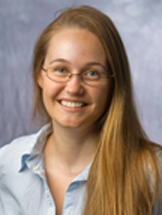 Lindsay Reynolds is a fifth-year PhD student in the Department of Communication at Cornell University. Her research interests focus on collaborative play in multi-player online games, deceptive mediated communication, and user experiences of persuasive health systems. She graduated from UCLA with a B.A. in Psychology and Sociology in 2005.
Lindsay Reynolds is a fifth-year PhD student in the Department of Communication at Cornell University. Her research interests focus on collaborative play in multi-player online games, deceptive mediated communication, and user experiences of persuasive health systems. She graduated from UCLA with a B.A. in Psychology and Sociology in 2005.
 Aimee Rickman is a PhD Candidate and an Illinois Program for Research in the Humanities (IPRH) graduate fellow at the University of Illinois at Urbana-Champaign where she studies young people’s new media practices as they relate to the infrastructure of adolescence. Her ethnographic dissertation explores how online social involvement mediates youth marginalization and frustration borne of adolescent marginality, and how this involvement relates to socialization and resistance in Western adolescence, and within U.S. society. She is especially interested in how material realities of adolescence inform the social media experiences of rural females in the U.S..
Aimee Rickman is a PhD Candidate and an Illinois Program for Research in the Humanities (IPRH) graduate fellow at the University of Illinois at Urbana-Champaign where she studies young people’s new media practices as they relate to the infrastructure of adolescence. Her ethnographic dissertation explores how online social involvement mediates youth marginalization and frustration borne of adolescent marginality, and how this involvement relates to socialization and resistance in Western adolescence, and within U.S. society. She is especially interested in how material realities of adolescence inform the social media experiences of rural females in the U.S..
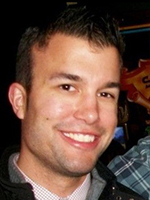 David J. Roaché is pursuing an M.A. in the Department of Communication at the University of Illinois at Urbana-Champaign, where he specializes in interpersonal and computer-mediated communication. More specifically, his primary research interest focuses how individuals, romantic partners, and families communicate, manage relationships, and seek information using new media. David’s most recent project investigated the role that picture tagging on Facebook has on impression formation and communication intentions on Facebook and offline.
David J. Roaché is pursuing an M.A. in the Department of Communication at the University of Illinois at Urbana-Champaign, where he specializes in interpersonal and computer-mediated communication. More specifically, his primary research interest focuses how individuals, romantic partners, and families communicate, manage relationships, and seek information using new media. David’s most recent project investigated the role that picture tagging on Facebook has on impression formation and communication intentions on Facebook and offline.
 Andrew Roback is a Ph.D. candidate in Technical Communication at Illinois Institute of Technology. Andrew’s interests include human behavior on social networking sites, social action in technical communication, social network analysis (SNA), and data visualization. To view his CV, research agenda, and projects, please visit his personal website.
Andrew Roback is a Ph.D. candidate in Technical Communication at Illinois Institute of Technology. Andrew’s interests include human behavior on social networking sites, social action in technical communication, social network analysis (SNA), and data visualization. To view his CV, research agenda, and projects, please visit his personal website.
Yoonmo Sang is a doctoral student in the Department of Radio-TV-Film at the University of Texas at Austin. He belongs to the Telecommunications and Information Policy Institute at the University of Texas at Austin. Yoonmo is most interested in several areas such as the tension between traditional news organizations and news aggregators, legal challenges that arise in numerous socio-cultural settings including journalism’s digital transition, and policies for the Internet governance under a blending environment of broadcasting and telecommunications.
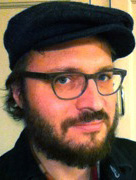 Andrew Schrock is a Ph.D. student at the Annenberg School for Communication & Journalism at the University of Southern California. His research focuses on mobile technologies, online communities & collectives, and the evolution of the Internet. He is currently a member of Henry Jenkins’ Civic Paths group and a fellow at the Annenberg Innovation Lab. Please see www.andrewrschrock.com for a detailed list of publications, links and open course-ware.
Andrew Schrock is a Ph.D. student at the Annenberg School for Communication & Journalism at the University of Southern California. His research focuses on mobile technologies, online communities & collectives, and the evolution of the Internet. He is currently a member of Henry Jenkins’ Civic Paths group and a fellow at the Annenberg Innovation Lab. Please see www.andrewrschrock.com for a detailed list of publications, links and open course-ware.
 Victoria Schwanda Sosik is a fourth-year PhD candidate in the Information Science Department at Cornell University. Her research focuses on designing and evaluating technologies to facilitate close interpersonal relationships in service of psychological well-being. She graduated from the University of Pennsylvania in 2009 with a BAS in Computer and Cognitive Science, a BA in Psychology, and a minor in Fine Arts.
Victoria Schwanda Sosik is a fourth-year PhD candidate in the Information Science Department at Cornell University. Her research focuses on designing and evaluating technologies to facilitate close interpersonal relationships in service of psychological well-being. She graduated from the University of Pennsylvania in 2009 with a BAS in Computer and Cognitive Science, a BA in Psychology, and a minor in Fine Arts.
 Liesel Sharabi is a third year Ph.D. student in the Department of Communication at the University of Illinois at Urbana-Champaign, where she is specializing in interpersonal and computer-mediated communication. Her primary research interests center upon the ways people use new media to develop romantic relationships. Specifically, she is exploring what attracts people to one another in online environments and how technology is used to initiate romantic relationships, with special attention paid to the transition from online to offline contact.
Liesel Sharabi is a third year Ph.D. student in the Department of Communication at the University of Illinois at Urbana-Champaign, where she is specializing in interpersonal and computer-mediated communication. Her primary research interests center upon the ways people use new media to develop romantic relationships. Specifically, she is exploring what attracts people to one another in online environments and how technology is used to initiate romantic relationships, with special attention paid to the transition from online to offline contact.
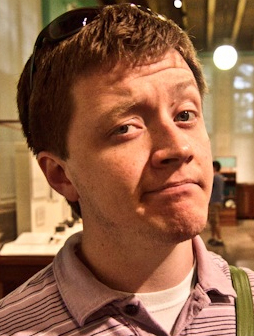 Darren M. Stevenson is a doctoral student in Communications and Media in the Institute of Communications Research, University of Illinois at Urbana-Champaign, with research appointments in the Center for People & Infrastructures and the Beckman Institute for Advanced Science & Technology. His research draws from communication studies, social computing, and science & technology studies to investigate how new technologies are envisioned, how they emerge, and the values that get embedded in the process. He is currently working on a project on patents.
Darren M. Stevenson is a doctoral student in Communications and Media in the Institute of Communications Research, University of Illinois at Urbana-Champaign, with research appointments in the Center for People & Infrastructures and the Beckman Institute for Advanced Science & Technology. His research draws from communication studies, social computing, and science & technology studies to investigate how new technologies are envisioned, how they emerge, and the values that get embedded in the process. He is currently working on a project on patents.
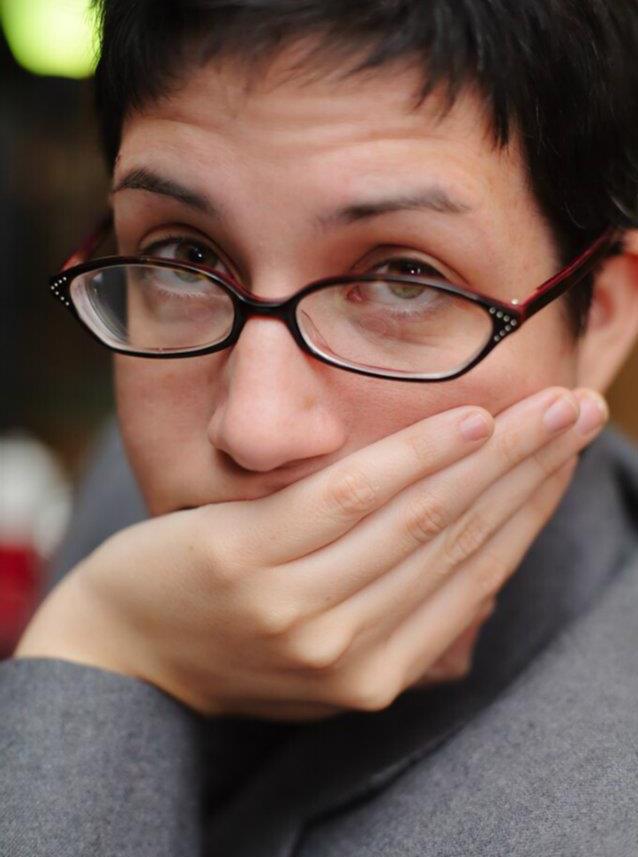 Kathryn Thompson is a PhD candidate in Gender Studies at Indiana University. Her dissertation project examines the social news site Reddit.com, and primarily investigates how various forms of difference come to be marked in online communities and how those narratives of difference and similarity contribute to patterns of inclusion and exclusion. Her research interests include gendered patterns of everyday technology usage, Internet meme culture, and new media audiences and fans.
Kathryn Thompson is a PhD candidate in Gender Studies at Indiana University. Her dissertation project examines the social news site Reddit.com, and primarily investigates how various forms of difference come to be marked in online communities and how those narratives of difference and similarity contribute to patterns of inclusion and exclusion. Her research interests include gendered patterns of everyday technology usage, Internet meme culture, and new media audiences and fans.
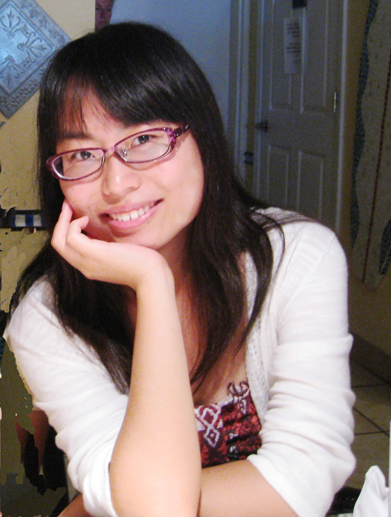
Zihan Wang. I am a last year Master student in Media and Communication Studies in Florida State University. I have experience in newspaper and advertising agencies. My research interest is CMC, with the focus on gender difference and cultural difference. Gender and cultural roles frame our ways of thinking (which is good and bad), and when I do my research, I realize that it is difficult to convey the delicate shades of meaning in a translation in intercultural researches. Researches do bring problems, but researches also provide new findings. Most of the times, I say researching is fun!
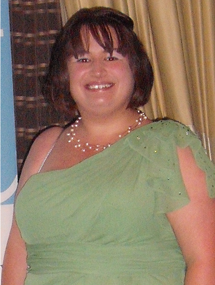 Jennifer Young recently graduated with her Master’s in Communication, Culture, and Technology from Georgetown University. Before that, she graduated from the University of Maryland with degrees in Government and Politics and Communication. She is fascinated by how new digital technologies are changing concepts and strategies of citizenship and political engagement. Her research work focuses on political discourse on social media, and her Master’s thesis was on the practices of political conversation on Facebook. Jennifer resides in Washington, DC. You can find her on Twitter: @jenoldyoung, LinkedIn, or Facebook.
Jennifer Young recently graduated with her Master’s in Communication, Culture, and Technology from Georgetown University. Before that, she graduated from the University of Maryland with degrees in Government and Politics and Communication. She is fascinated by how new digital technologies are changing concepts and strategies of citizenship and political engagement. Her research work focuses on political discourse on social media, and her Master’s thesis was on the practices of political conversation on Facebook. Jennifer resides in Washington, DC. You can find her on Twitter: @jenoldyoung, LinkedIn, or Facebook.


